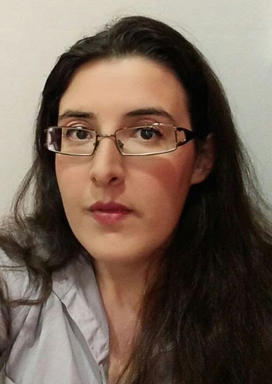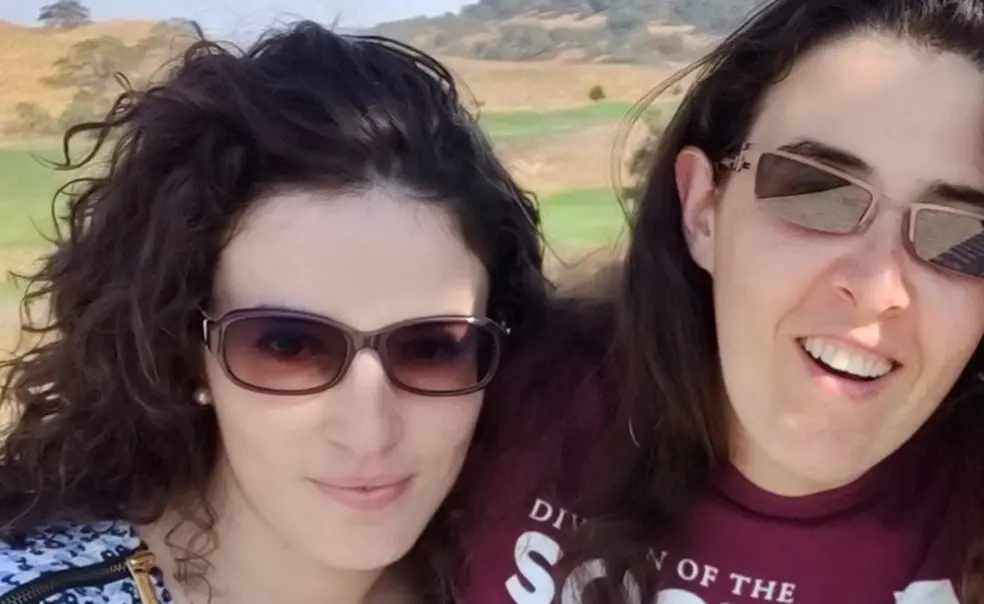Sister of Kidnapped Ph.D. Student Elizabeth Tsurkov Seeks Public Support from Princeton
Almost six months after her sister, Princeton doctoral candidate Elizabeth Tsurkov, was kidnapped in Iraq, Emma Tsurkov is speaking out and calling on Princeton to do the same, telling PAW, “It’s really heartbreaking that she’s been missing for so long. … We’re still waiting to hear about how she can be brought back home.”
For several months, the family has been working with the Richardson Center for Global Engagement, a nonprofit founded by the late Bill Richardson — a former congressman, U.S. ambassador to the United Nations, and governor of New Mexico — as a nongovernmental organization aiming to promote world peace. According to the center, its mission in part is to negotiate “for the release of prisoners and hostages held by hostile regimes or criminal organizations.”

Mickey Bergman, vice president and executive director of the Richardson Center, told PAW on Aug. 29, “We are working directly and indirectly with certain U.S. government entities to do what needs to be done in order to secure [Elizabeth’s] release.”
Bergman also echoed comments made by other experts who have called upon Princeton to act.
Princeton has “the power through different government agencies to make this an important thing for the United States, just by assuming the responsibility of saying, ‘Hey, yes, she’s our student, and yes, we’re very distraught with what happened to her, and we want our government to help us to do whatever it can to bring her home.’ Doing that allows for a whole bunch of tools and vehicles that can help in getting [Elizabeth] home safely,” said Bergman.
The University released a public statement when the initial announcement about Elizabeth Tsurkov’s kidnapping made news in early July. On Sept. 6,
University spokesman Michael Hotchkiss told PAW that after learning of Tsurkov’s disappearance, the University “immediately communicated with certain Israeli and U.S. government officials” until the Tsurkov family requested they not involve those officials in the hopes of keeping the situation quiet. But once the news became public, “the University has and continues to communicate with relevant government officials and experts” to secure Elizabeth’s release, according to Hotchkiss.
Hotchkiss said the University has also “been in regular communication with Elizabeth’s family to offer support.”
Elizabeth Tsurkov is a dual Israeli-Russian citizen and entered Iraq using her Russian passport. The U.S. State Department told PAW in an email: “We are aware of this kidnapping and condemn the abduction of private citizens.” The Israeli and Russian governments did not respond to requests for comment. In addition to studying at Princeton, she is a fellow at the New Lines Institute for Strategy and Policy in Washington, D.C.
After months of no news, Emma Tsurkov wrote an op-ed published by NJ.com Aug. 23 hoping to reignite the public conversation and motivate additional action to secure her sister’s release.
Bergman said publicity driven by the Tsurkov family isn’t going to influence Elizabeth Tsurkov’s captors. In Bergman’s view, news media attention does only one thing: “Apply the needed pressure on our own government in taking the action to secure the release of somebody. … Just in the last couple of years, you can see which American cases have gotten a lot of media attention and whether those people are home or not.”
Deborah Amos, a Ferris Professor of Journalism in Residence at Princeton and a former roommate of Elizabeth Tsurkov, said of the question of whether to speak up that “there’s no rules for this, and we all know it. There’s no good choice.
“Everybody always feels like they [make] the wrong decision, but the truth is, there’s no good one because you can’t ask the person who is at risk, and so, you just have to try to think it out.”
Emma told PAW that her sister was aware of the risk of traveling to Iraq and took precautions. “She felt that it was really important to do research that’s grounded in the lived experiences of her research subjects” by interacting directly with Iraqi citizens, Emma said.
According to a draft of her dissertation prospectus dated Jan. 27, 2021, Elizabeth’s planned research included studying “the Sadrist movement in Iraq, the PUK in Iraqi Kurdistan, and the Lebanese Forces in Lebanon.” There are also several mentions of “lab-in-the-field experiments in Iraq.”
Emma said her sister presented her research plan in a meeting that was open to the Department of Politics on Nov. 30, 2021, and the prospectus was approved over Zoom on May 17, 2022, by her dissertation committee, which was chaired by School of Public and International Affairs Dean Amaney Jamal and included politics professors Tali Mendelberg and Mark Beissinger.
“Multiple Princeton employees were well aware of my sister’s research in Baghdad,” Emma said.
Hotchkiss would not confirm details of Elizabeth Tsurkov’s prospectus, citing legal requirements for student privacy, but told PAW that “approval of a Ph.D. prospectus does not mean that a student has met the requirements to pursue all aspects of the proposed research, including travel to conduct field research. Approval of a Ph.D. prospectus is one step … separate and distinct from other steps that may be required” such as in absentia enrollment, travel registration, and, if the research involves human subjects, Institutional Review Board approval.
Princeton has maintained that no University-related travel to Iraq is permitted for any student. When asked specifically if Elizabeth Tsurkov’s travel plans were approved, Hotchkiss declined to get into details, instead saying that “the University limits information shared about individual students in keeping with legal requirements, including FERPA [the Family Educational Rights and Privacy Act].”
Princeton’s policies state that all students are required to share details of “domestic and international University-sanctioned travel” with its Global Safety & Security department. Iraq is on the list of the University’s “Category X” destinations, meaning that, since at least April 2022, “such travel [is] not feasible, even with significant precautions taken,” according to the Permitted Travel Policy.
In the weeks and months after her sister’s abduction, Emma Tsurkov said she was subject to “long, tedious Zoom calls” with University administrators that left her feeling as if she was “passed on from one official to another.” PAW reviewed emails between Emma Tsurkov and Princeton officials in which she requested multiple times for the University to release a statement acknowledging that Elizabeth Tsurkov was in Baghdad for dissertation research.
“Every hour in which this sentence is not published is increasing the cost of her release and is causing very real damage to her chances of survival. That is not just my assessment, but also that of the authorities involved in this matter,” Emma wrote in an email on July 9 to Lily Secora, associate dean for student affairs, and Jaime Signoracci, director of Global Safety & Security.
Amos has reported extensively in and on the Middle East and said Iraq has become increasingly dangerous. She knows of at least one journalist who was warned to leave and others who were told they were being watched.
But Amos also said that “you can’t cover that part of the world from the United States. It’s impossible. You have to go there,” especially with such a sensitive research topic as Tsurkov’s.
When they lived together in Princeton during the fall of 2021, Amos said, Tsurkov was suffering from long COVID and had symptoms including fatigue, brain fog that would sometimes “impair her judgment,” and the loss of her senses of taste and smell. As a result, their refrigerator was full of yogurt and maple syrup, because that’s most of what Elizabeth ate. Emma Tsurkov said her sister was still suffering from fatigue earlier this year.
Amos recalls that Elizabeth, who loves to exercise, would try to pick Amos up when she entered the house. “I had to yell at her to stop doing that,” Amos said with a laugh. “But it would always be funny. She’s a very funny human being.”
According to Emma, Elizabeth underwent emergency spinal surgery in Iraq two weeks before she was abducted and still had stitches in her back.
“All of this is heartbreaking, as if being a Jewish woman being held captive at the hands of an extremist terror group is not enough — the fact that she was still recovering from serious spinal cord surgery is one of the most haunting things about it and what keeps me up at night,” Emma said.
Emma was planning to come to campus in mid-September to meet with Provost Jennifer Rexford ’91. She hopes they can “start over [with] a productive relationship to help bring my sister back. I’m not the enemy of Princeton. I just want my sister back.”












2 Responses
Michael Goldstein ’78
2 Years AgoSupport for Elizabeth Tsurkov
Sept. 15 begins Rosh Hashanah, the Jewish New Year. It is clear that Elizabeth Tsurkov will not be free to celebrate with her family and friends. If she is still alive, she will begin her seventh month in unspeakable captivity in Iraq, where she was kidnapped by Islamic militants in March of 2023. For a school with a $36 billion endowment, Princeton has apparently done little or nothing to help Tsurkov regain her freedom and resume her studies at the University.
Christine Stansell ’71
2 Years AgoIn the Service of Humanity?
Regarding “Sister of Kidnapped Ph.D. Student Seeks Help” (On the Campus, October issue): This is a heartbreaking case, deeply troubling for the prospects of scholars the world over doing research in disaster/war-torn regions — exactly those parts of the world which urgently need the kind of in-depth analysis which a student like Elizabeth Tsurkov can provide. I ask the administration to recall the Princeton motto, “In the nation’s service and the service of humanity.”
The administration of the University needs to act to help Elizabeth Tsurkov. Princeton’s ties to the State Department and the diplomatic corps are many. I hope the administration will use them to act in service to this brave young woman.